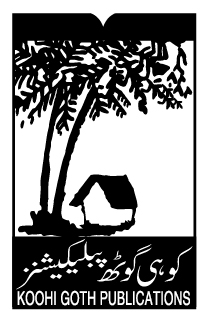Hand washing practice: A General Perception
Keywords:
Hand sanitizer, soap, microorganism, Health workers, hand washing.Abstract
Background: This study was conducted to estimate hand-washing practices in Karachi City, Pakistan. This time, we asked 100 men and women in their 20s to 50s (50 men and 50 women) about their thoughts on hand washing and analyzed their attitudes.
Objective: Although washing is an integral part of Islamic religious education and Karachi is considered the utmost progressive, cultured, and educated city.
Methodology: Currently serves 100 members to advance the environmental health and protection professional to provide a healthful environment for all.
Results: The results of the survey fell short of expectations, showing that pollution only 30% said they were aware that rubbed hands caused diarrhea in other habits. Only 40% said that coughing and sneezing helped spread the disease in their community. In addition, just 40% said they wash their hands regularly, about 50% know to use antibacterial soap, and 40% wash their hands with plain water without soap. However, most respondents, like 80%, claim many commercials are the best, which is why they are often confused with antibacterial soap choices. Also, the majority of respondents (60%) used towels to dry their hands, and 70% of the population shared areas to receive towels or other areas.
Conclusion: 70% follow good habits of washing hands after using the restroom. 80% also acknowledged the undeniable fact that curricula must be introduced into schools at the grassroots level.
Background: This study was conducted to estimate hand-washing practices in Karachi City, Pakistan. This time, we asked 100 men and women in their 20s to 50s (50 men and 50 women) about their thoughts on hand washing and analyzed their attitudes.
Objective: Although washing is an integral part of Islamic religious education and Karachi is considered the utmost progressive, cultured, and educated city.
Methodology: Currently serves 100 members to advance the environmental health and protection professional to provide a healthful environment for all.
Results: The results of the survey fell short of expectations, showing that pollution only 30% said they were aware that rubbed hands caused diarrhea in other habits. Only 40% said that coughing and sneezing helped spread the disease in their community. In addition, just 40% said they wash their hands regularly, about 50% know to use antibacterial soap, and 40% wash their hands with plain water without soap. However, most respondents, like 80%, claim many commercials are the best, which is why they are often confused with antibacterial soap choices. Also, the majority of respondents (60%) used towels to dry their hands, and 70% of the population shared areas to receive towels or other areas.
Conclusion: 70% follow good habits of washing hands after using the restroom. 80% also acknowledged the undeniable fact that curricula must be introduced into schools at the grassroots level.
Downloads
Published
How to Cite
Issue
Section
License
Copyright (c) 2022 The Author

This work is licensed under a Creative Commons Attribution 4.0 International License.








